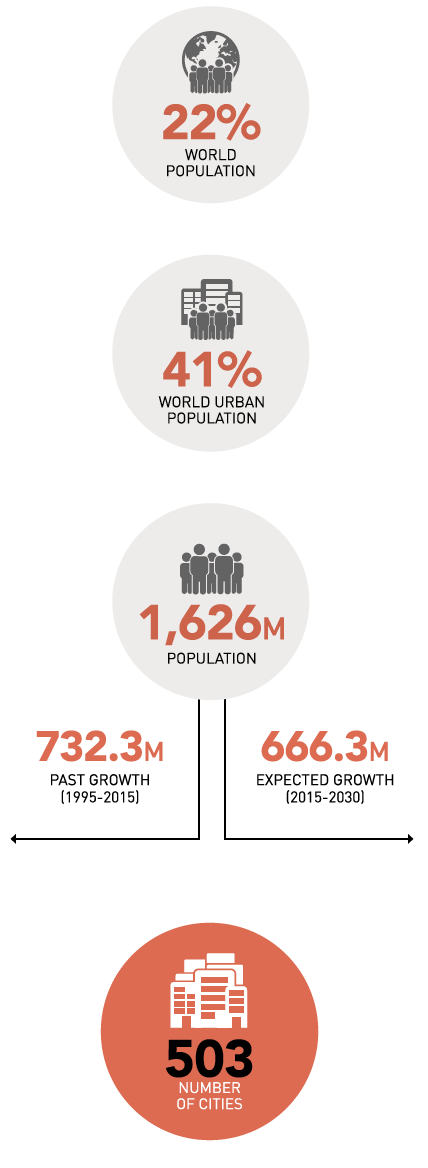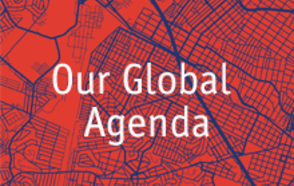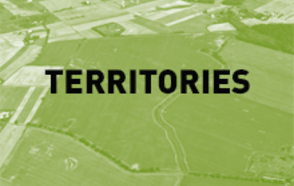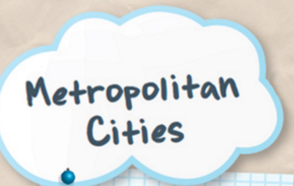The complexity of the metropolitan age
 Metropolitan areas today encompasses 41% of the world´s population and contribute significantly to the wealth of nations (around 60% of the global GDP).
Metropolitan areas today encompasses 41% of the world´s population and contribute significantly to the wealth of nations (around 60% of the global GDP).
As a result, most growing cities now span several municipal territories and other political boudaries, including different types of peripherial cities as part of inner and outer rings.
Metropolitan areas are where many of the world´s most pressing issues can be solved, but also where they accumulate.
Agenda for metropolitan areas - key messages
 Establish new governance models to deal with the increasing complexity of metropolitan areas.
Establish new governance models to deal with the increasing complexity of metropolitan areas.
 Base metropolitan governance on democracy, transparency and collaboration.
Base metropolitan governance on democracy, transparency and collaboration.
 Give metropolitan areas adequate powers and resources
Give metropolitan areas adequate powers and resources
 Develop comprehensive economic strategies in metropolitan areas to drive the national economy and create opportunities for all
Develop comprehensive economic strategies in metropolitan areas to drive the national economy and create opportunities for all
 Use vision-led strategic planning to support inclusive urbanism.
Use vision-led strategic planning to support inclusive urbanism.
 Ensure quality infrastructure and services that are resilient and accessible to all
Ensure quality infrastructure and services that are resilient and accessible to all
 Lead the transition to sustainable and more resilient societies with greener and smarter metropolitan areas.
Lead the transition to sustainable and more resilient societies with greener and smarter metropolitan areas.
 Promote ‘territorial solidarity’ between metropolitan areas, intermediary cities and their hinterlands.
Promote ‘territorial solidarity’ between metropolitan areas, intermediary cities and their hinterlands.
 Put the ‘right to the city for all’ at the heart of urban policies in order to renew the social contract and strengthen metropolitan citizenship
Put the ‘right to the city for all’ at the heart of urban policies in order to renew the social contract and strengthen metropolitan citizenship
 Recognize culture (including heritage, diversity and creativity) as a pillar of flourishing metropolitan areas.
Recognize culture (including heritage, diversity and creativity) as a pillar of flourishing metropolitan areas.
 Actively engage on the global stage, and cooperate and promote knowledgesharing among metropolitan governments
Actively engage on the global stage, and cooperate and promote knowledgesharing among metropolitan governments














